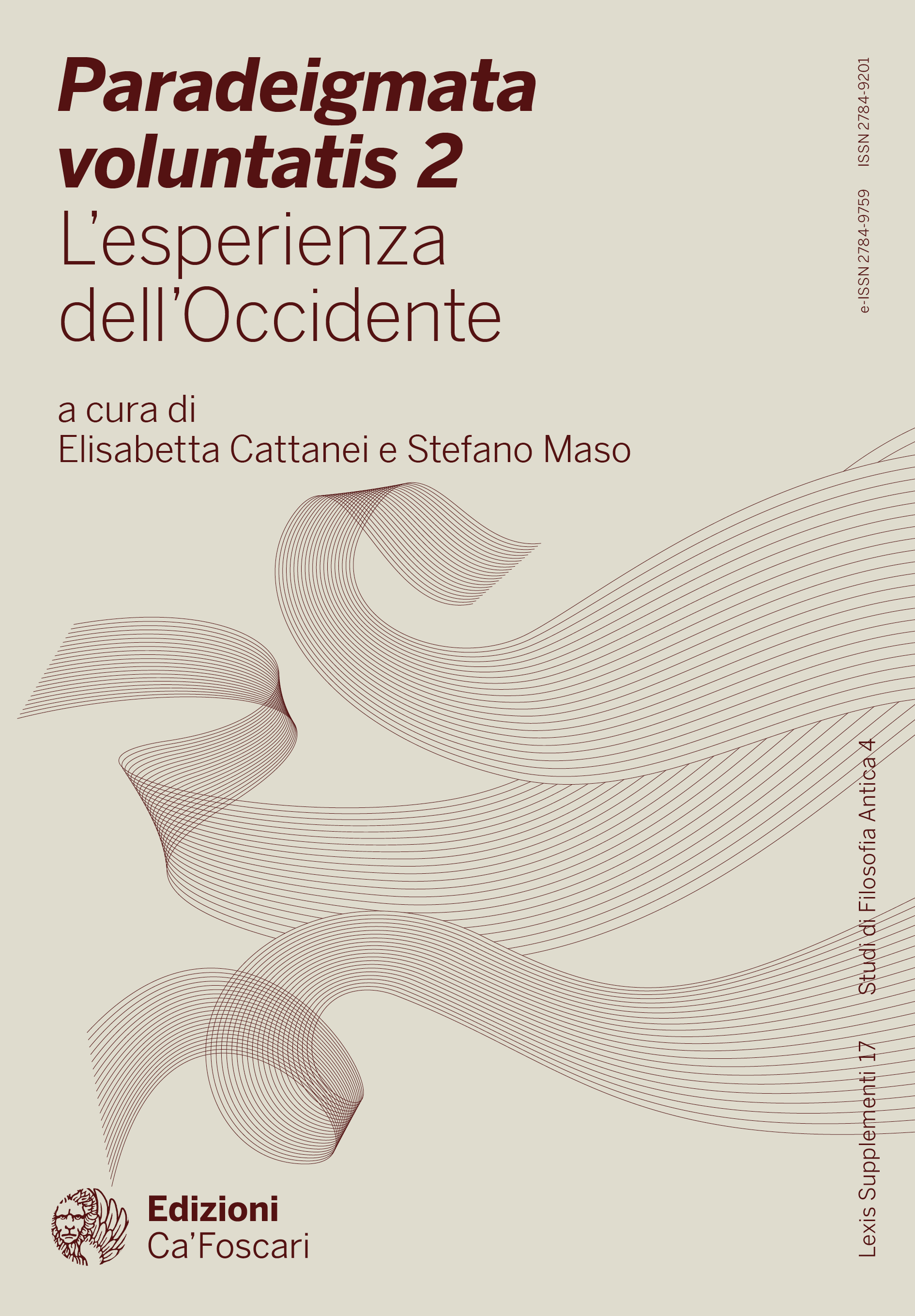Series |
Lexis Supplements
Edited book | Paradeigmata voluntatis 2
Chapter | Dal βούλεσθαι del Demiurgo di Platone alla voluntas divina di Calcidio
Dal βούλεσθαι del Demiurgo di Platone alla voluntas divina di Calcidio
Abstract
This chapter deals with the prehistory of the notion of voluntas by examining Plato’s portrayal of divine will in the Timaeus and by tracing its evolution in the earliest Latin translations of the dialogue. This analysis illustrates how Plato’s nuanced terminology for expressing the Demiurge’s will gradually becomes standardized, being often translated uniformly through voluntas and velle. Special attention will be devoted to Calcidius, who strongly accentuates the notion of divine will in his translation while presenting a less pronounced, non-radical conception of it in his commentary. By highlighting this asymmetry between translation and commentary, this study shows that it does not imply any inconsistency on Calcidius’ part, but rather underlies specific methodological and philosophical reasons. As a result, this asymmetry sheds light on Calcidius’ exegetical approach and proves to be consistent with his commitment to sempiternalism, as it becomes apparent when placing the commentator within Platonist debates on demiurgy, divine will, and providence.
Submitted: Sept. 10, 2024 | Accepted: Oct. 1, 2024 | Published March 13, 2025 | Language: it
Keywords Divine will • Providence Middle Platonism • Plato’s Timaeus • Calcidius • Demiurge
Copyright © 2025 Laura Marongiu. This is an open-access work distributed under the terms of the Creative Commons Attribution License (CC BY). The use, distribution or reproduction is permitted, provided that the original author(s) and the copyright owner(s) are credited and that the original publication is cited, in accordance with accepted academic practice. The license allows for commercial use. No use, distribution or reproduction is permitted which does not comply with these terms.
Permalink http://doi.org/10.30687/978-88-6969-902-3/001





